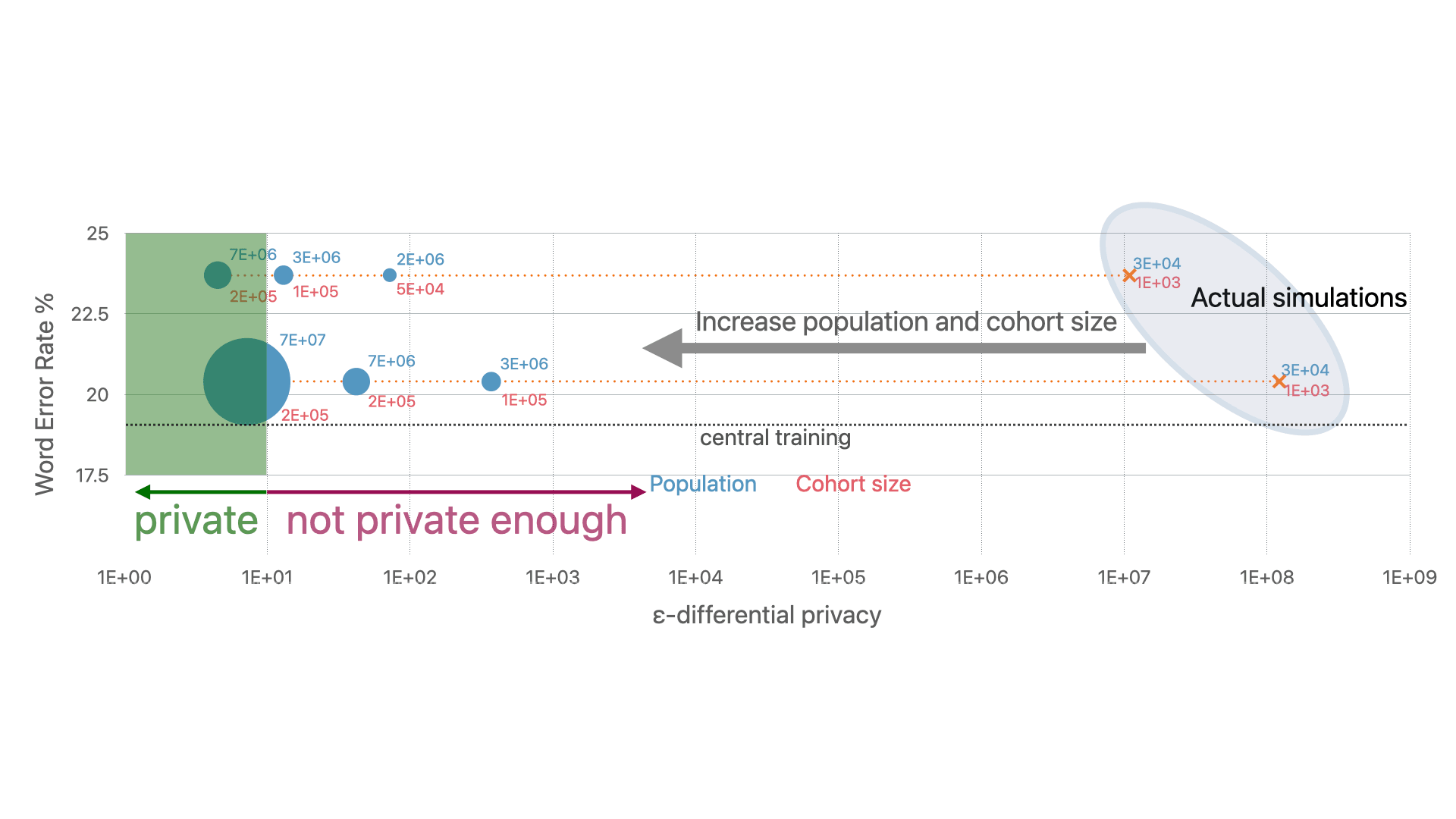While federated learning (FL) and differential privacy (DP) have been extensively studied, their application to automatic speech recognition (ASR) remains largely unexplored due to the challenges in training large transformer models. Specifically, large models further exacerbate issues in FL as they are particularly susceptible to gradient heterogeneity across layers, unlike the relatively uniform gradient behavior observed in shallow models. As a result, prior works struggle to converge with standard optimization techniques, even in the absence of DP mechanisms. To the best of our knowledge, no existing work establishes a competitive, practical recipe for FL with DP in the context of ASR. To address this gap, we establish the first benchmark for FL with DP in end-to-end ASR. Our approach centers on per-layer clipping and layer-wise gradient normalization: theoretical analysis reveals that these techniques together mitigate clipping bias and gradient heterogeneity across layers in deeper models. Consistent with these theoretical insights, our empirical results show that FL with DP is viable under strong privacy guarantees, provided a population of at least several million users. Specifically, we achieve user-level (7.2, 10−9)-DP (resp. (4.5, 10−9)-DP) with a 1.3% (resp. 4.6%) absolute drop in word error rate when extrapolating to high (resp. low) population scales for FL with DP in ASR. Although our experiments focus on ASR, the underlying principles we uncover — particularly those concerning gradient heterogeneity and layer-wise gradient normalization — offer broader guidance for designing scalable, privacy-preserving FL algorithms for large models across domains.
- * Equal Contributors
- † Purdue University
Figure 1: (ε, δ)-DP guarantees: central seed trained on Librispeech (100h) and fine-tuned with federated learning and differential privacy on Common Voice (1,500h) shows practical quality while preserving (ε, δ)-DP for extrapolation to larger population and cohort size.

